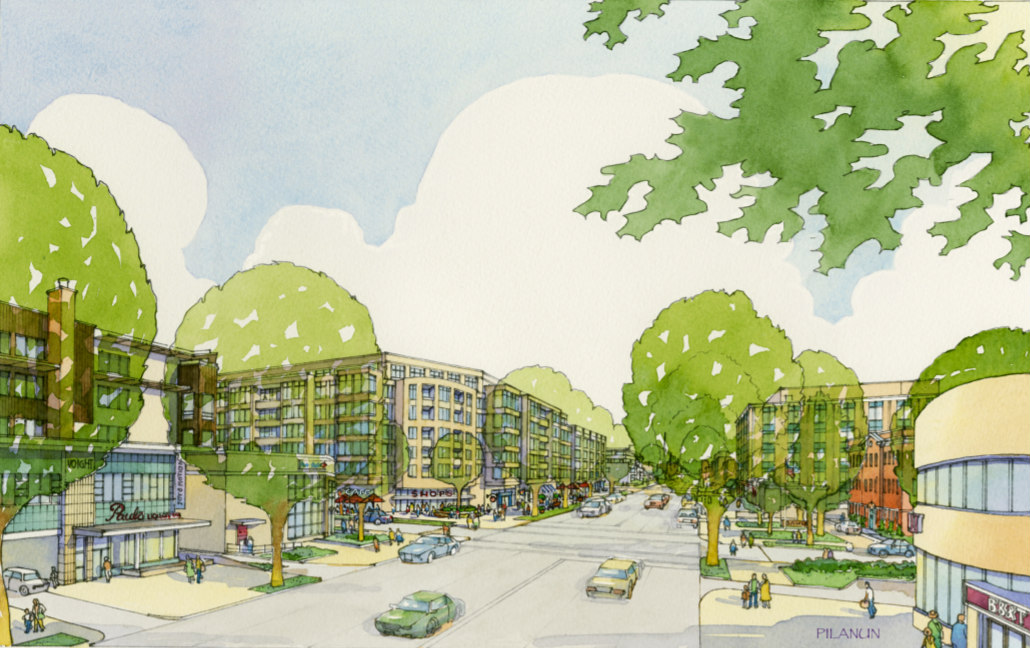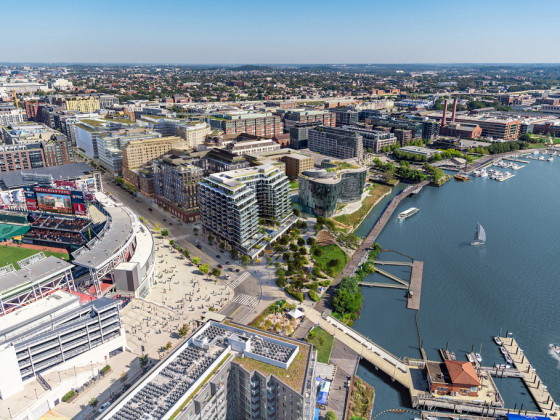What's Hot: Did January Mark The Bottom For The DC-Area Housing Market? | The Roller Coaster Development Scene In Tenleytown and AU Park
 More ADUs and More Awareness: Experts Weigh in On How To Add Housing West of Rock Creek Park
More ADUs and More Awareness: Experts Weigh in On How To Add Housing West of Rock Creek Park
✉️ Want to forward this article? Click here.

If residents of Wards 2 and 3 don't want more dense development in their neighborhoods, maybe they should build an accessory dwelling unit in their backyard.
This was one of the many interesting recommendations a panel of Urban Land Institute (ULI) experts offered last Friday for how DC can add housing west of Rock Creek Park. Well, not quite; the actual note was that if 14 percent of the 17,700 single-family detached lots in these neighborhoods constructed ADUs, this would satisfy the city's mandate to add 2,500 units of housing here by 2025.
story continues below
loading...story continues above
The panel had a variety of other recommendations for the city, and UrbanTurf outlined some of those below:
- Expand what is allowable by-right to streamline the entitlement process, and create consistency in the application of planned unit development (PUD) provisions to guarantee more reliable outcomes for developers and for communities. This would be accomplished by:
- Updating the Small Area Plans to make them instructive for by-right zoning rather than the prescriptive outlines they currently provide, eliminating ambiguity and further reducing the risk of litigation.
- Allowing bonus density in exchange for voluntary increases in affordable housing.
- Eliminating required parking minimums.
- Upzoning areas within a half-mile of Metro stations and within a quarter-mile of bus corridors.
- Explore avenues to mitigate opponents' options to fight development. This can be accomplished by:
- Creating a legal defense fund for the city to be able to compete with wealthy residents who can bankroll protracted campaigns to fight development.
- Considering ways to revise the historic preservation standards to simultaneously prevent the weaponization of preservation to preempt development while increasing protection of cultural history.
- Educate residents about affordable housing and the history of racist housing policy. The panel noted how the city ran (arguably) successful public information campaigns for such things as emergency housing in each ward to replace DC General homeless shelter. The idea is that, if more people were educated about the history of how housing has evolved in the country and in their specific neighborhoods, they would be more understanding of and receptive to the "moral imperative" to construct housing where they live.
- Prioritize development with "gentle density increases" in underutilized activity hubs like MacArthur Boulevard and close to five Metro stations (Friendship Heights, Tenleytown, Van Ness, Cleveland Park and Woodley Park).
- Single-use, single-story buildings along major commercial corridors should be incorporated into new mixed-use projects to enliven the corridor and add housing.
- The panel mentioned Cathedral Commons and the Sears redevelopment in Tenleytown (current Container Store and future Target location above the Metro station) as missed opportunities to maximize density on major corridors. The following key future opportunities were cited:
- The four-acre WMATA garage and the adjacent Pepco substation on Wisconsin Avenue, although the latter is arguably an example of how historic preservation could preempt development.
- The Galleria and Lord & Taylor parking lots at Mazza Gallerie in Friendship Heights.
- The Fox 5 site on Wisconsin Avenue, where a development proposal will likely be filed next year.
- Make accessory dwelling units a more viable and prevalent option for homeowners. In noting how few ADUs have been constructed since the zoning code was clarified in 2016, the panel recommended the city streamline the permitting and approval process, appoint staff to specifically walk homeowners through the process, and be creative in finding ways to help homeowners with financing.
- Consider master leasing residential buildings, with or without a nonprofit partner, to sublet to underserved city residents.
- Be more proactive about both acquiring land via a land bank and in partnership with land trusts, and about developing city-owned land by allowing developers to submit unsolicited bids.
In the short term, the panel recommended the following as being the easiest and quickest tasks for the city to take on:
- Launch a series of education sessions west of Rock Creek Park to inform residents of the racist history of housing policy and how development goals address this.
- Revisit the ADU process in order to simplify and incentivize their creation.
- Partner with, and connect developers with, more faith-based organizations, which typically share the goal of providing housing for all.
Prior to issuing their recommendations, the panel of experts spent a week touring sites and meeting with city leaders and stakeholders to tackle the question of how DC can add housing affordable to households earning between 30 and 80 percent of area median income west of RCP. ULI will coalesce the panel's findings and recommendations into a final report to be presented at their September conference.
See other articles related to: affordability, affordable housing dc, rock creek park, uli, uli dc, urban land institute, ward 2, ward 3, west of rock creek park
This article originally published at http://dc.urbanturf.production.logicbrush.com/articles/blog/more-adus-and-more-awareness-ulis-recommendations-to-add-housing-west-of-ro/15651.
Most Popular... This Week • Last 30 Days • Ever

As mortgage rates have more than doubled from their historic lows over the last coupl... read »

The small handful of projects in the pipeline are either moving full steam ahead, get... read »

Lincoln-Westmoreland Housing is moving forward with plans to replace an aging Shaw af... read »

The longtime political strategist and pollster who has advised everyone from Presiden... read »

A report out today finds early signs that the spring could be a busy market.... read »
DC Real Estate Guides
Short guides to navigating the DC-area real estate market
We've collected all our helpful guides for buying, selling and renting in and around Washington, DC in one place. Start browsing below!
First-Timer Primers
Intro guides for first-time home buyers
Unique Spaces
Awesome and unusual real estate from across the DC Metro














